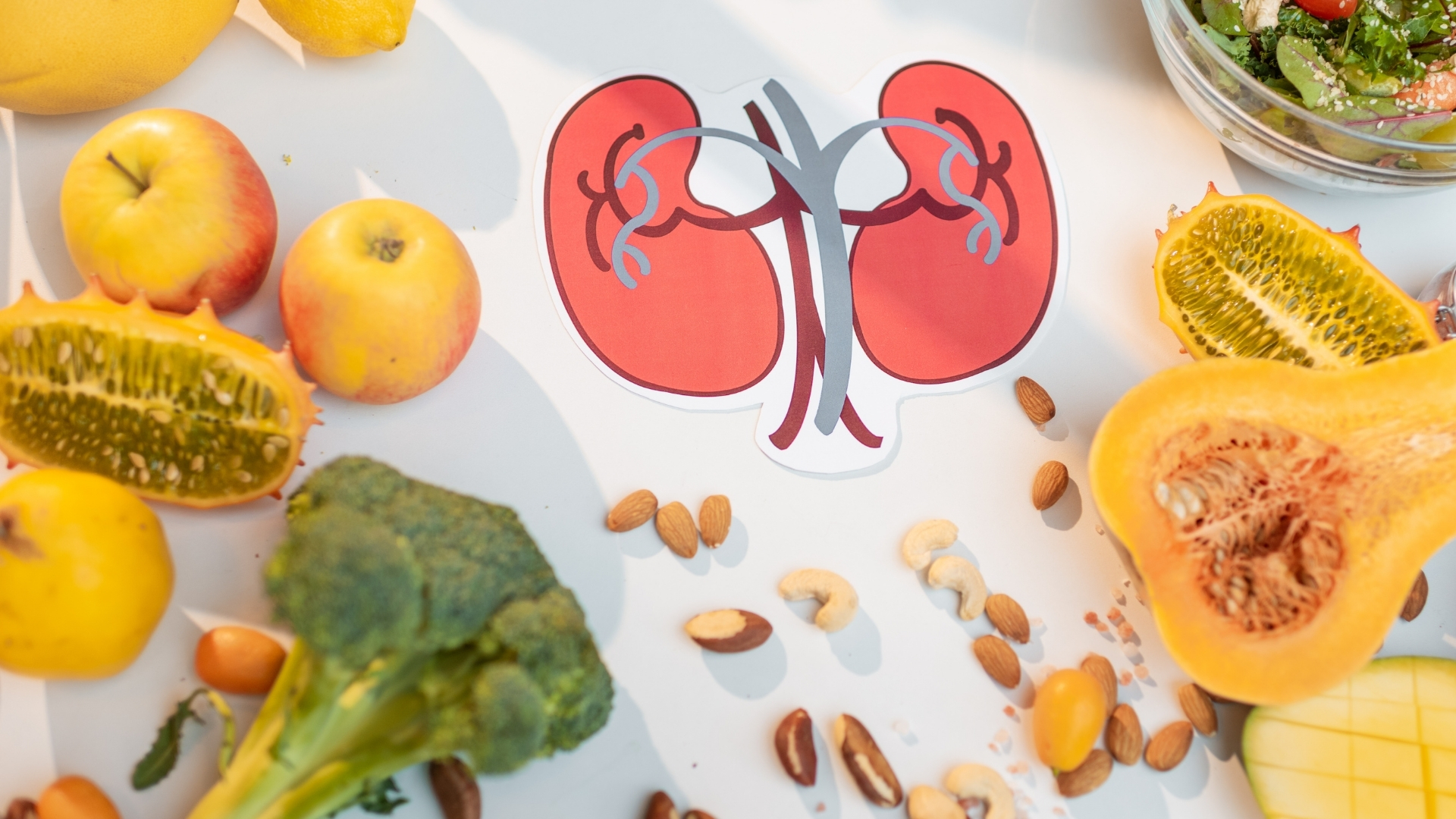
Maintaining kidney health is crucial for overall well-being, as the kidneys play a vital role in filtering waste, balancing body fluids, and regulating blood pressure. Incorporating kidney-friendly foods into your diet, such as foods good for kidneys, can help support kidney function and prevent chronic kidney disease. Eating a balanced, kidney-healthy diet rich in nutrients can protect these vital organs and contribute to long-term wellness. Here are twelve essential foods for better kidney health:
Table of Contents
1. Blueberries
Blueberries are packed with antioxidants, particularly anthocyanins, which help reduce inflammation and protect against oxidative damage. These properties are beneficial for maintaining kidney health and preventing chronic kidney disease (CKD). Blueberries are also low in potassium, making them a kidney-friendly fruit.
2. Cauliflower
Cauliflower is a cruciferous vegetable rich in vitamin C, folate, fiber, and compounds like sulforaphane that support the body's detoxification processes. It can help reduce oxidative stress and inflammation, which are beneficial for kidney health. Cauliflower can be used as a low-potassium alternative to potatoes in various recipes.
3. Olive Oil
Olive oil is a healthy fat with anti-inflammatory properties, making it a great addition to a kidney-friendly diet. It contains monounsaturated fats that remain stable at high temperatures, providing a healthy cooking option. Using extra virgin olive oil enhances these benefits, contributing antioxidants to your meals.
4. Garlic
A Garlic offers a flavorful alternative to salt, which is important for those with kidney concerns as high sodium intake can strain the kidneys. Garlic is rich in vitamin C and B6 and contains sulfur compounds that provide anti-inflammatory and antioxidant benefits, supporting overall kidney health.
5. Bell Peppers
Bell peppers are low in potassium and high in vitamins A, C, and antioxidants. They help reduce inflammation and improve immune function. Their low potassium content makes them a safe and nutritious addition to a kidney-friendly diet, and they can be enjoyed raw, grilled, or stuffed.
6. Cabbage
Cabbage is a nutrient-dense vegetable full of vitamin K, vitamin C, and B vitamins, along with fiber that aids digestion. It is low in potassium and can be easily incorporated into a renal diet through salads, coleslaw, or steamed dishes.
7. Skinless Chicken
Skinless chicken is a lean protein source with less potassium and sodium compared to processed meats. It's important to choose fresh, non-seasoned chicken to avoid added sodium and phosphorus, which can be harmful to kidney health.
8. Red Grapes
Red grapes are rich in flavonoids, including resveratrol, which have been shown to reduce inflammation and protect against diabetes and cardiovascular diseases, indirectly benefiting kidney health. They are low in potassium and can be enjoyed fresh or added to salads).
9. Apples
Apples are low in potassium and high in fiber and antioxidants. They help reduce inflammation, lower cholesterol, and prevent constipation. Eating apples regularly can support overall health and aid in managing kidney function.
10. Fish
Fish such as salmon, tuna, and sea bass are rich in omega-3 fatty acids, which have anti-inflammatory properties and help reduce the risk of heart disease. Consuming fish twice a week can provide high-quality protein and support kidney health.
11. Cranberries
Cranberries prevent urinary tract infections by preventing bacteria from adhering to the urinary tract lining. They are low in potassium and provide antioxidants and anti-inflammatory benefits, making them an excellent choice for kidney health .
12. Onions
Onions are low in potassium and high in antioxidants like quercetin, which helps reduce blood pressure and inflammation. They add flavor to dishes without the need for excessive salt, making them a kidney-friendly option.
Incorporating these foods into your diet can help maintain kidney health and prevent the progression of kidney disease. Always consult with a healthcare provider or a dietitian for personalized dietary advice, especially if you have existing kidney conditions. Making smart food choices and adopting a balanced diet can significantly contribute to better kidney health and overall well-being.



Leave a Reply
You must be logged in to post a comment.